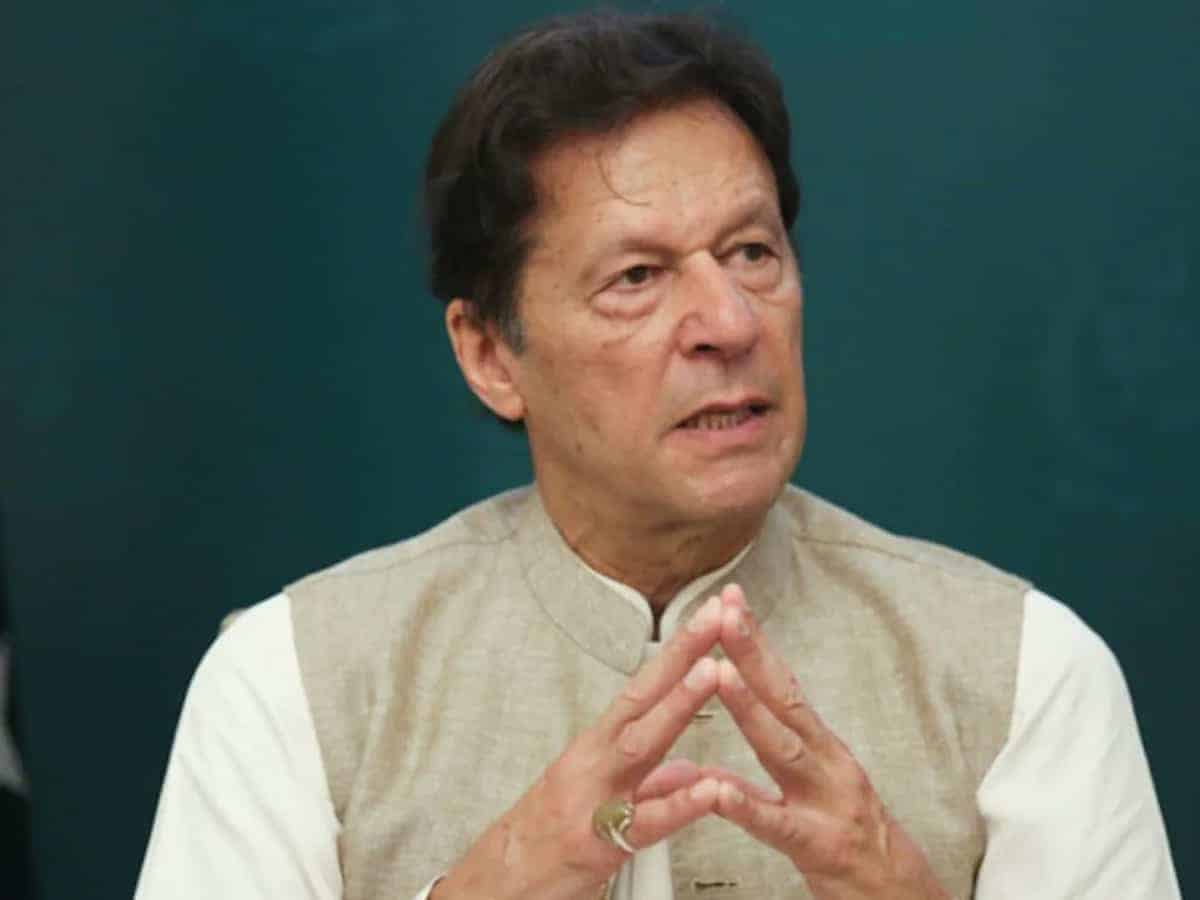
Islamabad: A special court on Wednesday extended till September 13 the judicial remand of Imran Khan in a case related to the alleged disclosure of state secrets, dashing hopes of the former Pakistan prime minister’s quick release from jail.
Judge Abual Hasnat Zulqarnain, who arrived at Attock jail in the Punjab province to conduct the hearing, issued the order in the case of the missing cipher, a classified state document that Khan had waved during a political rally ahead of his ouster from office last year.
The hearing of the case took place at Attock District Jail following approval by the Law ministry amid security concerns expressed by the Interior ministry.
Authorities decided on Tuesday to hold the hearing of the case inside the Attock jail where 70-year-old Khan has been kept since August 5 after his conviction in the Toshakhana corruption case.
Khan’s sentence was suspended by a two-member bench of the Islamabad High Court on Tuesday, but he was not allowed to walk free, as the judge hearing the cipher case ordered that the Pakistan Tehreek-e-Insaf (PTI) chief be kept in prison and produced for hearing on Wednesday.
According to Geo News report, Judge Zulqernain extended judicial remand till September 13, meaning that Khan will remain in jail.
Khan’s five-member legal team headed by Advocate Salman Safdar attended the court hearing in the prison, the report said.
Initially the team was denied access, but was later allowed to enter and meet Khan inside the jail.
Khan’s close aide and former foreign minister Shah Mahmood Qureshi is already in custody in the same case.
The case launched earlier this month alleged that Khan and others were involved in the violation of the secret laws of the country.
Qureshi will also be produced at the judicial complex in relation to the cipher case on Wednesday after his two-day remand is completed, the sources said.
Qureshi’s lawyer and PTI leader Babar Awan will be representing him at the court.
In March last year, ahead of the vote of no-confidence that resulted in his ouster, Khan pulled out a piece of paper allegedly the cipher from his pocket and waved it at a public rally in Islamabad, claiming it was the evidence of an “international conspiracy” being hatched to topple his government.
However, during the interrogation with the joint investigation team (JIT) in the jail on August 26, Khan denied that the paper he waved at a public gathering last year was the cipher. He also admitted to losing the cipher, saying he couldn’t recall where he kept it.
His principal secretary Azam Khan stated before a magistrate and the FIA that the Khan used it for his political gains’ and to avert a vote of no-confidence against him.
Qureshi was foreign minister when the issue of the diplomatic cable erupted.
The purported cipher (secret diplomatic cable) contained an account of a meeting between US State Department officials, including Assistant Secretary of State for the Bureau of South and Central Asian Affairs Donald Lu, and Pakistani envoy Asad Majeed Khan last year.
Of late, Khan has come under increased scrutiny following the publication of a purported copy of the secret cable by the US media outlet The Intercept, with many in the previous government led by Shehbaz Sharif pointing fingers at the PTI chief for being the source of the leak.
A division bench comprising Islamabad High Court (IHC) Chief Justice Aamir Farooq and Justice Tariq Mehmood Jahangiri on Wednesday suspended Khan’s three-year sentence in Toshakhana corruption and ordered his release from the jail in Punjab province.
The Toshakhana case was filed by ruling party lawmakers in 2022 in the Election Commission of Pakistan (ECP), alleging that Khan concealed the proceeds from the sale of state gifts. The ECP first disqualified Khan and then filed a case of criminal proceedings in a sessions court which convicted him and subsequently, Khan was sent to jail.
The case alleges that Khan had “deliberately concealed” details of the gifts he retained from the Toshakhana – a repository where presents handed to government officials from foreign officials are kept – during his time as the prime minister from 2018 to 2022 and proceeds from their reported sales.
As per Toshakhana rules, gifts/presents and other such materials received by persons to whom these rules apply shall be reported to the Cabinet Division.
According to reports, Khan received 58 gifts worth more than Rs 140 million from world leaders during his three-and-a-half-year stint and retained all of them either by paying a negligible amount or even without any payment.



